40 years of ‘Subhalekha’
K. Viswanath’s 1982 Telugu hit movie saunters the fine line between social awareness and an engaging narrative
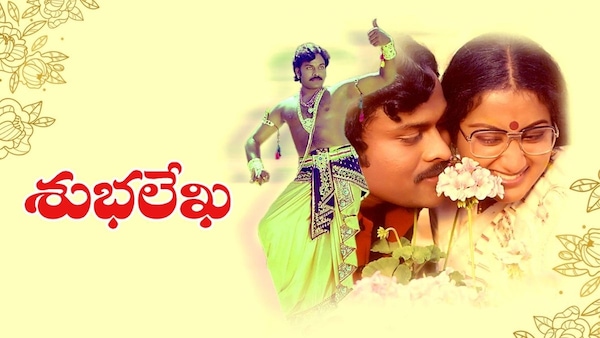
Last Updated: 07.56 AM, Mar 25, 2022
Several elements go into the Viswanath formula - a character not usually considered hero-worthy, a social awareness message delivered with nuance, an underdog story, classical music or classical dance, sometimes both as integral to the plot, and unselfconscious performances not rooted in the theatre tradition, but born of the medium of cinema. It's a credit to the veteran director that despite the formula, his movies are not formulaic.
Subhalekha (1982) conveys a social message on the evils of dowry, without making it a heavy-handed preachy saga. But alongside, it also intelligently conveys a message on the dignity of labour.
Narasimha Murthy (played by Chiranjeevi) is a waiter at a star hotel in Visakhapatnam. In the hotel owner’s words, Murthy is an 'asadhyudu' or an extraordinarily talented person. He is confident, intuitive, compassionate and has oodles of gumption which sometimes land him in sticky situations, not all of which he can wiggle out of by using his charm.
Murthy promises to find a college seat for his recently-widowed cousin which brings him to a private college where Sujatha (played by Sumalatha) is a lecturer. Although they have met before, this scene demonstrates Murthy’s gumption not only to the principal but to Sujatha as well.
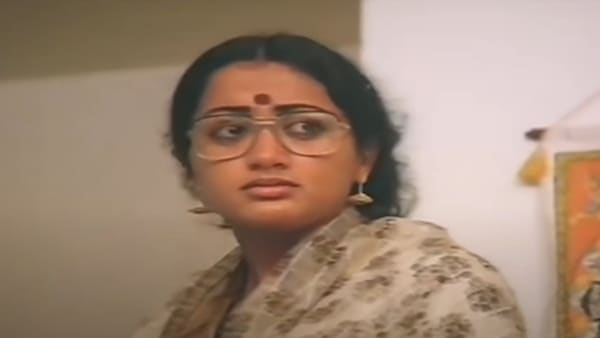
Sujatha belongs to a middle-class family and lives with her parents (played by J.V. Ramana Murthi and Pushpakumari) and her younger sister, the ebullient Lakshmi (played by Thulasi). When Sujatha objects to the dowry demands of her prospective father-in-law, the wealthy Adiseshayya (played by Satyanarayana) she sets into motion many events. The first of which is the loss of her job as a lecturer at the college that Adiseshayya owns.
Murthy is witness to Sujatha’s altercation with Adiseshayya, and he openly insults him at an event where he is being felicitated. Adiseshayya sets goons on to Murthy, landing him in hospital, and Murthy eventually loses his job.
Sujatha finds understanding and kinship with Murthy, who is respectful towards her and is matter-of-fact about his inferiority as a college dropout to her being a lecturer. In some ways, he places her on a pedestal. Sujatha’s friendship with Murthy alienates her from her beloved parents who wonder if there’s more to this relationship she has with a social inferior. Apart from the earlier bride-seeing scene where Sujatha revolts, it is also in this scene that her character comes into her own. While deeply hurt by her parents’ anxieties that her relationship with Murthy would hamper Lakshmi’s marital prospects, Sujatha is sure of herself and walks out of her home, while Murthy vows to Sujatha’s father that he will ensure she marries someone who is her equal, without paying a dowry.
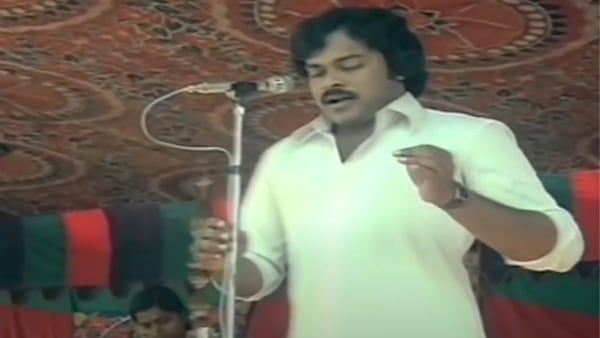
Murthy suggests to Sujatha that they visit a senior executive of a company, Rao (Arun) whom he knows, in Hyderabad. With Rao being out of the country, Murthy and Sujatha decide to wait for his return. They seek a house on rent from a lawyer, Chillara Bhavani Sankaram (played by Allu Ramalingaiah) whose initial misgivings about them give way to permitting the two to stay in the thatched house on his terrace.
Meanwhile, Sujatha’s sister Lakshmi is determined to teach Adiseshayya a lesson. She woos and enamours his second son, the Walkman-toting music lover Murali (played by ‘Subhalekha’ Sudhakar). When Sudhakar arm-twists his father into seeking an alliance with Lakshmi for him, Adiseshayya is subjected to a counter haggling by Lakshmi who deftly manipulates the situation while maintaining an obedient persona. The negotiated dowry, Adiseshayya eventually realises, comes with a price.
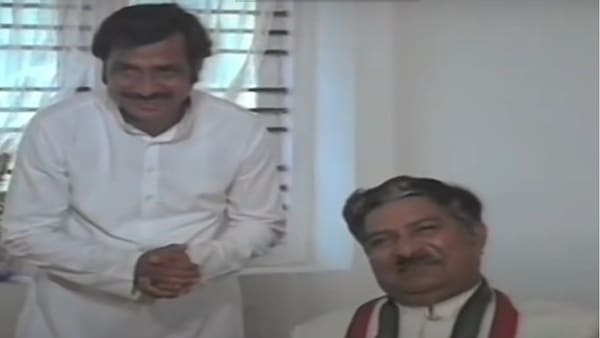
In Hyderabad, on Rao’s return, Sujatha is given a senior management position in the company. In an emotionally nuanced scene, she shows Murthy her office cabin, while indirectly conveying that his struggles on her behalf, have borne fruit, even as she feels conscious that the only person who stood by her through her travails has taken on a canteen waiter’s job in the same company.
Meanwhile, the audience is let in on the fact that Sujatha is falling in love with Murthy although he is blissfully unaware of it. He goes on to matchmake her with Rao and the wedding is also arranged. With Murthy eventually being told of Sujatha's true feelings, all’s well that ends well, apart from the small rankle that it is assumed that Murthy would be willing to change the gears of his unnamed relationship with Sujatha to a more romantic plane overnight.
PERFORMANCES
Forty years ago, when Chiranjeevi began to play the protagonist and was getting noticed for his dancing prowess, K. Viswanath cast him in the role of Murthy. This was the first of three movies that Viswanath and Chiranjeevi worked together on, but Subhalekha's success was unmatched. Chiranjeevi showcases his dancing, but not to the extent of it overshadowing the rest of Murthy’s personality.
Sumalatha was known to be 19 years old at that time, and to play a lecturer at a college, a bespectacled, saree-clad look was perhaps created so she didn’t look like a student herself! But the appearance only supported the composure and assuredness that she brings to a character with quiet integrity.
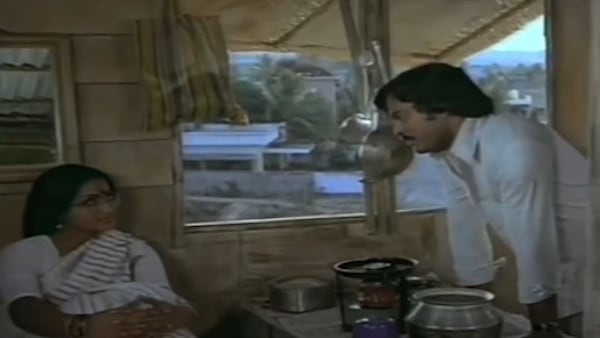
Tulasi, who three years before Subhalekha was still a child actor appearing in Viswanath’s Shankarabharanam (1979), was a 15-year-old in real life, playing Sujatha’s younger sister with a touch of mischief and lightness. Lakshmi is in some ways a counterpoint to Sujatha in the way she freely adapts herself to situations as long as they are in her favour - she wears salwar kameezes and western clothes while wooing Murali, and wears sarees when around family.
Sudhakar’s debut performance made such an impression that he continues to be called ‘Subhalekha’ Sudhakar. The character he plays, Murali, along with his brother, are raised by Adiseshayya as sons who would attract a high dowry. However, unlike his brother, he is willing to defy his father for the love of his life.
Adiseshayya as a character is right up K. Satyanarayana's alley, and he plays him as pompous and having delusions of grandeur. Along with his sidekick Gurnadham (played by Rallapalli), Adiseshayya is depicted as the antagonist who isn't a diabolic villain, but a symbol of patriarchy.
RELEVANCE
Subhalekha is a refreshing outlier from an era when love stories usually involved dream sequences in exotic locales, elaborate costumes and sets were par for the course, and there was as much choreography in the fight sequences as in the songs. Murthy as a waiter, makes for an unlikely male lead and Sumalatha, as the lecturer, is a bespectacled traditionally dressed Indian woman with a progressive outlook.
Music is a big element in a Viswanath movie, sometimes part of a scene, like the alapana that Moorthy sings in the hotel kitchen while also enacting an explanation. Sometimes, it’s in the choice of krithis by Carnatic music composers for specific situations. Like the Annamacharya krithis ‘Vinnapaalu Vinavale Vintavintalu’ in the opening titles, or ‘Neyyamulallo’ that Murthy sings at the college where he tries to get his cousin admitted. There’s also the Thyagaraja krithi, ‘Marugelaraa O Raaghavaa’ that cues Sujatha’s moment of realisation about her feelings for Murthy. However, the songs written by Veturi Sundararama Murthy and composed by K.V. Mahadevan for the movie became immensely popular - ‘Ayithe’ and ‘Raagaala pallakilo’. There's a studied silence about the duet between Lakshmi and Murali - 'Nee Jada Kuchulu' - and one can only assume that it is not regarded as being on par with the rest of the songs in the movie.
Subhalekha was remade in Hindi as Shubh Kaamna (1983) with Rati Agnihotri and Rakesh Roshan. It can at best be considered a placeholder for a certain type of cinema of an era, but it lacks the assuredness of the original.
(Views expressed in this piece are those of the author, and do not necessarily represent those of OTTplay)
(Written by Saritha Rao Rayachoti)
